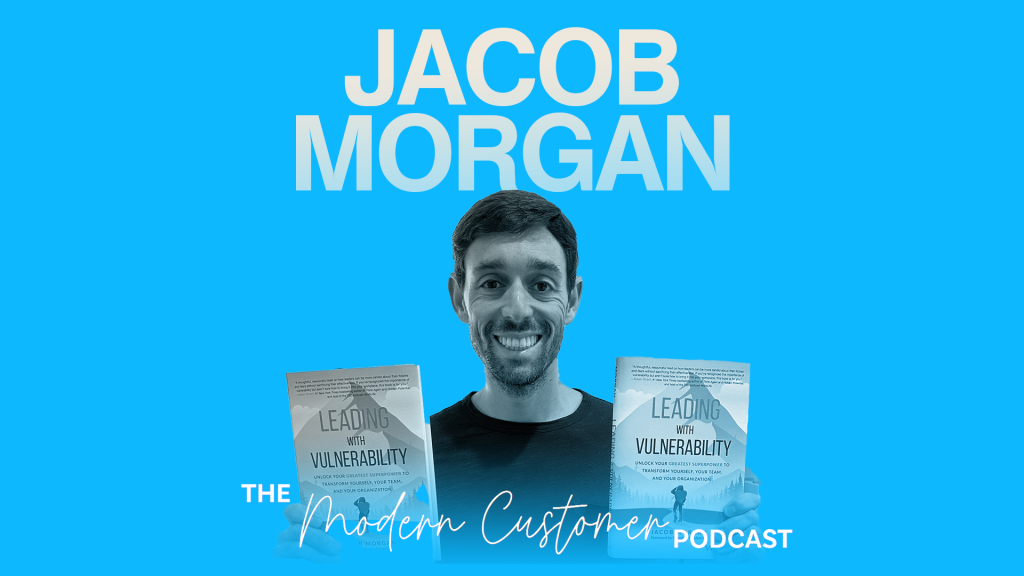Most of us have grown up with the stereotyped idea that a leader should be emotionless and impersonal. But this isn’t the case, as we so often see that introducing personal feelings and emotional intelligence into the mix can make for better leaders with stronger connections to their employees.
In this episode of my podcast, I’m proud to say that I sat down with Jacob Morgan, my husband of nine years and father to our two children. Jacob is a certified futurist and speaker and has just published his fifth book, Leading with Vulnerability: Unlock Your Greatest Superpower to Transform Yourself, Your Team, and Your Organization. Jacob spoke with me about vulnerability in the workplace and how it’s an essential tool and complement for leadership.
When we think of leadership, we often think about how we make ourselves emotionally vulnerable in our personal lives. This can help us relate to others and build stronger connections with our friends and family. However, Jacob says that the kind of vulnerability we can express at work is decidedly different.
If a manager talked to their employees about how they were feeling down and having a bad day, that’s expressing emotional vulnerability. It could help employees understand the leader’s challenges and struggles. But, as Jacob points out, employees also want to see strength, competence, and confidence from their leaders. That’s why it’s crucial to mix leadership with vulnerability.
Jacob shared two stories to illustrate what leading with vulnerability means to him.
In the first story, an ex-CEO of Continental Airlines in the 1990s was asked to write a memo to all the staff of the struggling airline. He wrote that the business was having a very difficult time and that the situation with the economy was really working against them. He offered no solutions other than essentially asking employees to pray for the future of their company.
In contrast, the CEO of a struggling South African energy company used a different strategy. Rather than giving a memo, he held an all-hands meeting for all employees and spoke to them directly. He expressed that the company was struggling with debt and the threat of closure, yet he had a vision for how to turn things around. He appealed to the employees to follow his leadership and work together to rebuild and improve.
While the CEOs in both these examples showed vulnerability, only the second mixed that vulnerability with leadership to successfully direct his company out of crisis.
How does this apply to the customer service space?
Jacob talked about contact centers and the issues they encounter. Many employees in these centers don’t have the tools to help the customers and simply face a lot of negativity daily. Managers aren’t always equipped to help and support these employees emotionally, and as a result, churn in contact centers really high at about 45%.
When leading with vulnerability, Jacob says managers should try to relate to their employees’ struggles. They can approach their employees in less confrontational ways that don’t feel like blame and punishment but encourage them to improve. Instead of just pointing out problems, managers need to talk about what can be learned from these issues and provide ways to fix them.
In customer service, just as in any other leadership space, being vulnerable can help employees and managers relate to each other better. However, without adding in leadership, vulnerability in the workplace can have a negative influence on employees, causing them to lose faith in their leaders. However, mixing leadership with vulnerability can be an extremely effective way to connect with and motivate your employees.
_________________
Blake Morgan is a customer experience futurist and the bestselling author of The Customer of the Future. For regular updates on customer experience, sign up for her weekly newsletter here.

